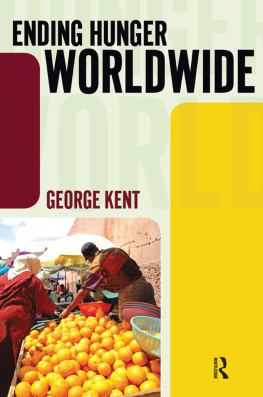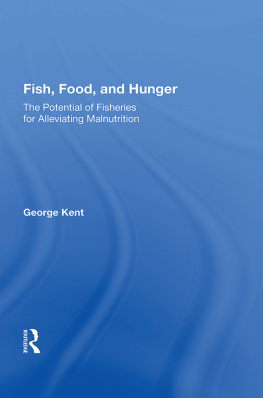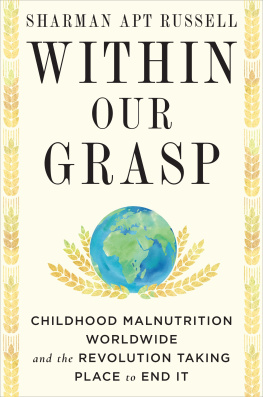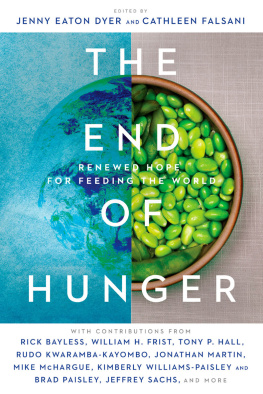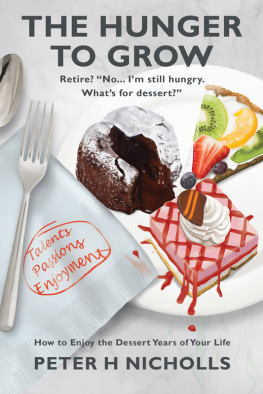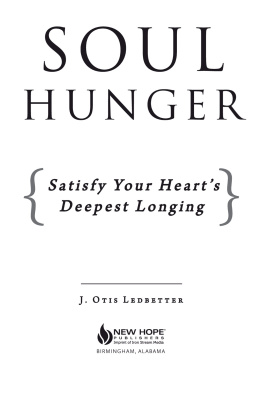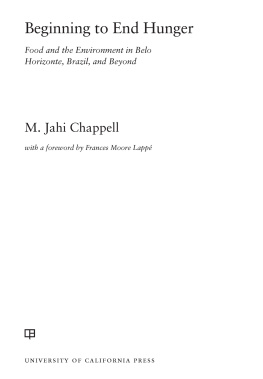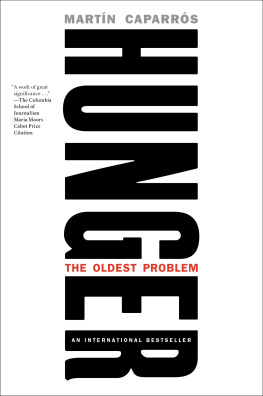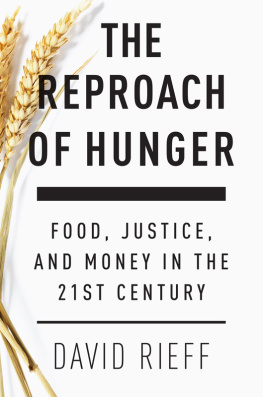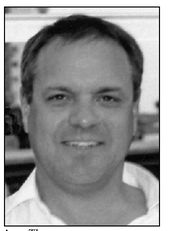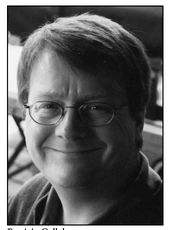ACKNOWLEDGMENTS
To all those in Africa who welcomed us into their homes, their fields, and the shade of their trees and told us their stories, thank you. This book wouldnt have been possible without the narratives of their lives in the hollow of plenty. Many of their stories are in these pages; we hope we have done them justice.
The African reporting was helped immensely by a multitude of people who pointed the way, and then helped us get there. Government ministers, aid workers, fellow journalists, drivers, interpreters, bartenders. And in the capitals of Europe and many points in the United States, there have been countless experts on international agriculture and the hunger issue who shared their analysis, facts, documentation, and passion. Thank you in particular to Chris Dowswell, Norman Bolaugs aide-de-camp; Julie Howard at the Partnership to Cut Hunger and Poverty in Africa; Max Finberg of the Alliance to End Hunger; Gary Toenniessen at the Rockefeller Foundation; Ann Tutwiler at the William and Flora Hewlett Foundation; and Marshall Bouton of the Chicago Council on Global Affairs.
Many of the episodes in this book began as stories in The Wall Street Journal, so we are grateful to our past and present colleagues who supported our reporting sojourns around the world, among them: Bryan Gruley, Lee Lescaze, Karen House, Fred Kempe, Paul Steiger, Ken Wells, John Brecher, Mike Miller, Marcus Brauchli, and Kevin Helliker. There has been a battalion of editors who sharpened our copy, and a legion of reporters who shared their knowledge and opened their notebooks to us. Our thanks and appreciation to all of them. We are particularly grateful to our current colleagues in the Journals Chicago bureau who cheered us to the finish line.
It was Ken Wells, an ace foreign correspondent, editor, and author himself, who helped us hatch the idea for this book. From his post overseeing the Journal s book division, he shepherded our proposal to PublicAffairs, where it was embraced by founder Peter Osnos, publisher Susan Weinberg, and senior editor and marketing director Lisa Kaufman. Lisa shared our vision for the book from the outset and provided invaluable advice. Meredith Smith and Annette Wenda deftly guided the production and editing. And publicity director Whitney Peeling has spread the word. Rose Ellen DAngelo, director of the Journal s books and special projects realm, kept the faith and the good humor. Anne Thurow and Patricia Callahan read many drafts of this book and detected wayward passages big and small.
Above all, our deepest gratitude goes to our families for their love, encouragement, and steadfast belief in our work.
Anne Thurow
Patricia Callahan
Roger Thurow has been a Wall Street Journal foreign correspondent for twenty years. He was based in South Africa from 1986 to 1991, an assignment during the last-gasp years of apartheid and the early days of reconciliation that ignited a passion for writing about humanitarian and development issues. His reporting has taken him to more than sixty countries, including two dozen in Africa. Scott Kilman has covered agriculture at the Journal for much of the past two decades, chronicling the actions of the U.S. government and agro-industrial sector that impact farmers and consumers worldwide. He writes about trade, biotechnology, food safety, subsidies, and the rural economy. Over the past seven years, Thurow and Kilman have teamed up to produce a stream of page 1 stories in the Journal that have broken new ground in our understanding of famine and food aid. Their stories on the 2003 famines in Ethiopia and southern Africa were a finalist for the 2004 Pulitzer Prize in International Reporting. The series, Anatomy of Famine, was praised by the Pulitzer board for haunting stories that shed new light on starvation in Africa and prompted international agencies to rethink their policies. In 2005, Thurow and Kilman were honored by the United Nations for their reporting on humanitarian and development issues. They are both based in Chicago.
EPILOGUE
Hagirso
In the final room of the Famine Museum in Strokestown, Ireland, on the very last wall, the eyes of the hungry stare out at visitors in two haunting photos. One, from India, dated 1876, is a portrait of several skeletal famine victims, adults and children, arranged in a macabre group pose. The other photo is from Sudan, 1985, in what was perhaps a camp for Ethiopians who fled their famine only to end up in another land that had nothing to eat. A stick-figure child sits alone in the sand, while, in the foreground, a couple of photographers ready their cameras.
John ODriscoll, the museums general manager, pulled his jacket tight against the chill as he entered this last room. It was autumn, the tourist off-season, so the heating was turned down in the museum. But even in the summer, a shiver is common for those in the presence of these final powerful exhibits, looking into the eyes of the starving. You should hear the reaction to these photos, particularly the reaction of the children, ODriscoll said, noting that schoolkids make up a large portion of the 60,000 annual visitors to the museum. Shock. Anger. And the questions.
Always questions.
Why?
What happened to the children?
Did they die?
What happened to Hagirso, the starving Ethiopian boy in the emergency feeding tent up in the Boricha highlands? Did he die?
There had been little improvement to the road climbing from the lowlands to the plateau since the relief trucks carrying food and medicine rumbled over the dirt and gravel in 2003. For six miles it spiraled upward, following the contours of a corkscrew, past the mud-brick tukuls of the peasant farmers. On top of the plateau, the road leveled off and provided relatively smooth passage to the small shops and densely packed neighborhoods of the regions main town. The health clinic was still operating, but the emergency feeding tents were gone. Weeds had overgrown the field of stones.
Another fifteen kilometers or so, said Nega Ambago, the World Food Program field officer for the Boricha area.
The dirt pathway was choked with the usual market-day travel. There were some trucks and cars and motor scooters, but mainly people traveled by donkey-drawn wagons, some of which transported a dozen passengers at once. A few of the fancier wagons had a cloth awning to provide a little shade. Most, though, were open to the blazing sun. It was one of these basic versions that had carried starving Hagirso, cradled in the arms of his father, Tesfaye, to the emergency feeding center five years earlier.
The market traffic thinned as the road left the town behind. Vegetation thickened, and Nega intensified his lookout. A cluster of huts appeared on the left side of the road. Stop here, Nega said. The WFPs white Toyota Land Cruiser rolled to a gentle halt. Tesfaye should be here.
What seemed to be the entire population of the little village, children and adults alike, immediately surged to the vehicle, propelled by curiosity. The crowd parted as a tall, thin man came striding out of the settlement, a silver sickle in hand. There he is, said Nega.
A broad smile stretched across Tesfayes face. Still hanging on to the sickle, he bear-hugged each of his visitors. I remember you, Tesfaye said. I was in the feeding center. We were sitting on the floor. You took some pictures. You asked how my child came to be sick. You asked my name, my childs name.


